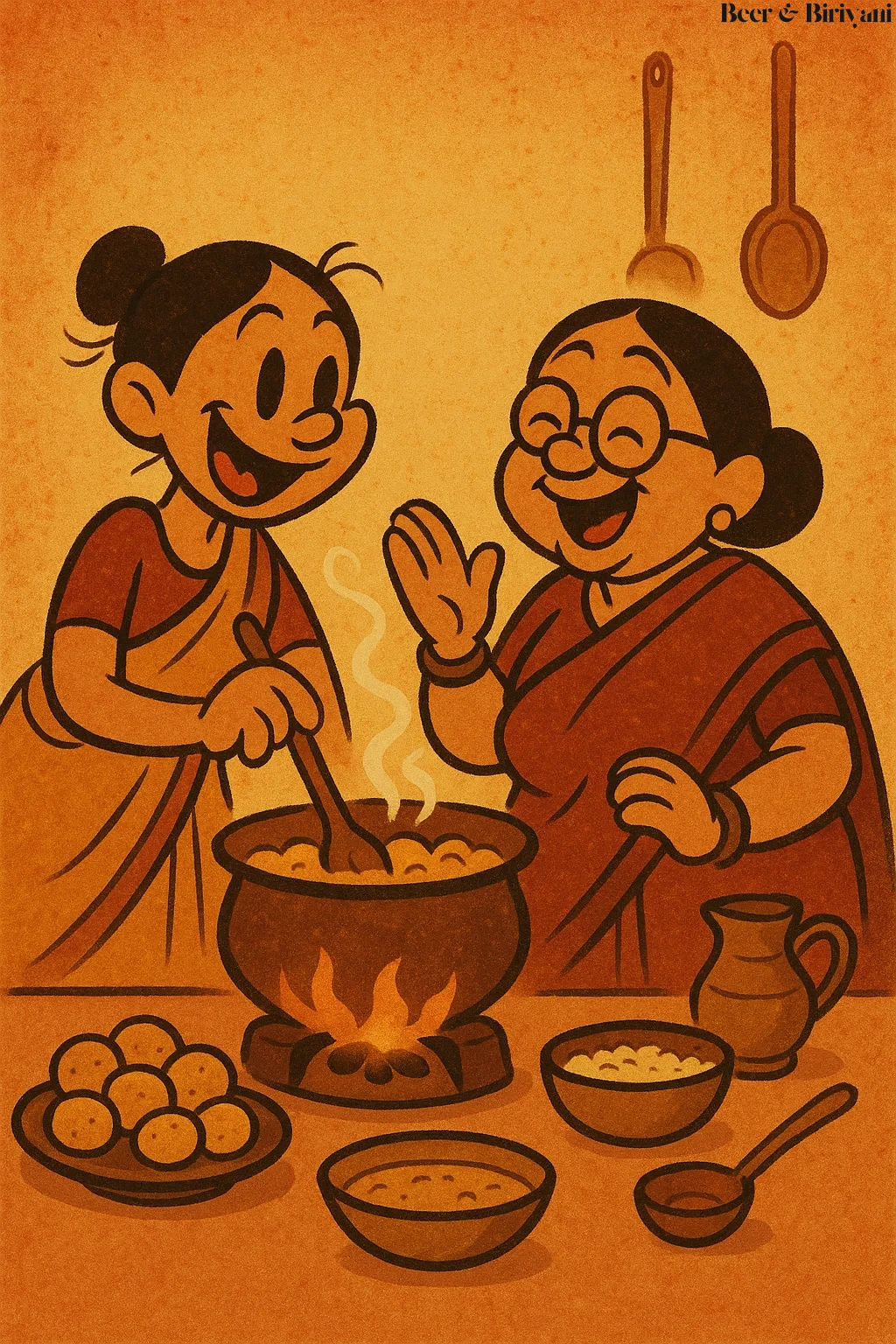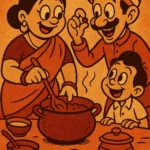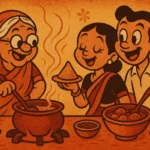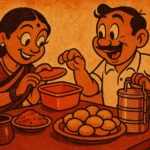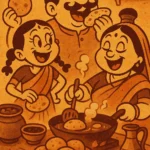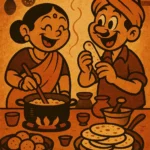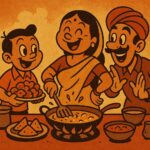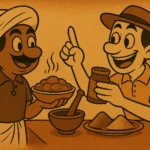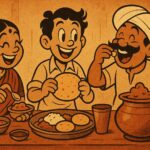It’s a Sunday afternoon, and I find myself standing in the kitchen, hovering over a pot of curry that I’m certain is not quite right. I’ve tried, really tried, to recreate it exactly as it was made in my childhood home in Mumbai. But there’s something missing. That elusive balance of spices, the rich depth of flavor that I swear I saw my mother effortlessly conjure up with nothing but a few humble ingredients and a lot of love. And then, just as expected, my mom enters the kitchen. “What’s that?” she asks, peering into the pot with that look. You know the one—the one that says she can smell your inadequacies in the air.
“It’s the curry, Mom, the one you make all the time,” I reply, trying not to sound desperate for approval. “Hmm… okay, but you know, the recipe is something you just have to feel,” she responds, a smile playing on her lips. And there it is. The classic line. The line that has haunted me for years. The line that will forever keep the true magic of her cooking locked away in her hands, somewhere I’ll never reach.
It’s not that my mom is being malicious. No, she’s simply keeping the family cooking secrets close to her chest, as all good Indian mothers and aunts do. They teach you just enough to get by, but they leave out the crucial details—like the perfect amount of “a pinch” of garam masala or how long to let the tadka sizzle before adding the tomatoes. And thus, the sacred recipe remains a mystery, a secret that is passed down through gestures, not instructions.
The Art of Gatekeeping in Indian Kitchens
In Indian kitchens, the act of gatekeeping a recipe is an art form in itself. Every family has that one dish—the one that everyone talks about, the one that makes you feel like an outsider when you try to replicate it, despite all the years you’ve spent in the kitchen watching the master at work. Whether it’s the perfect mutton curry, the flakiest parathas, or the most decadent biryani, these recipes come with a side of mystery and, often, some passive-aggressive resistance to sharing the “full” method.
Growing up, I watched my mom cook, fascinated by the way she effortlessly combined spices with such finesse. She’d sprinkle a little bit of this, a little bit of that, and before long, it would smell like heaven. But when I asked for the recipe, it was always the same—“Just follow your instincts,” she would say, leaving me to stand in front of a steaming pot, wondering if my instincts were simply not as good as hers. Then there’s the classic, “You can’t rush it, just let it cook slowly. You’ll know when it’s done.” My inner child would scream, “But HOW do I know, Mom? Tell me HOW!”
And so, like many others, I was left with a fractured collection of hints and vague instructions that could never quite unlock the perfect curry. There’s a magic in the unspoken, a wisdom passed down through generations, but for me, it was just an endless cycle of trial and error. For some reason, this is where the allure lies—knowing that you may never completely figure it out, but still chasing the flavor, the smell, the warmth of something that can never be truly replicated. That’s the beauty of Indian cooking, I suppose: the love is in the mystery.
Why I’ll Never Learn That Recipe
There’s a kind of love embedded in the cooking of Indian mothers and aunts that is, for lack of a better term, unquantifiable. And that’s where the secret lies—it’s not just in the ingredients, but in the effort, the care, and the years of accumulated knowledge. They don’t just “know” how much salt to add; they know *why* it’s needed at that exact moment, and that’s what I’ll never fully grasp. I can mimic their gestures all I want, but I’ll always feel like an imposter.
It’s not that I don’t want to learn the recipe, trust me—I do. I want to be able to replicate the taste, to serve it at dinner parties and have people say, “This tastes just like your mom’s!” But deep down, I know I’m not just trying to cook the dish. I’m trying to recreate something much bigger: the love, the tradition, the connection to my past. That elusive perfection is wrapped in layers of memory, and no amount of recipes or measurements can capture it.
And so, I continue in this relationship with cooking, trying and failing, succeeding and stumbling. Each time I make the dish, I add my own twist, hoping that one day, I’ll finally find the “right” way. Maybe I’ll never get there, but maybe that’s the point. Maybe this constant search for the “perfect recipe” is actually a love letter to those who never gave us the full instructions, leaving us with just enough to keep us coming back for more.
Food as Family, Food as Love
When I first moved to Austin, I spent hours in my small kitchen, trying to make the same meals my mom would cook for me in Mumbai. But something was always missing. Sure, the spices were the same, but without the little tweaks that only she could explain, without the warmth of her presence, something was always a little off. It wasn’t just the recipe that I was missing; it was her. Her voice in the kitchen, her laughter, her guidance. It’s not just the dish that makes it special; it’s the memories tied to it.
As I stand over a simmering pot of curry now, I realize that the beauty of these recipes lies not in their precision, but in their imperfection. I’ll never get the recipe just right, and that’s okay. What matters is that I’m part of something bigger—something that’s been passed down through generations, through the warmth of shared meals, and through the little pieces of wisdom passed on, even when they weren’t meant to be shared at all. The food isn’t just in the cooking; it’s in the living, the laughing, and yes, the failing along the way.
A Love Letter to Gatekeeping Mothers
So, here’s to you, Mom, and to all the mothers and aunts out there who keep their recipes close. You’ve taught me more than you know. And maybe one day, I’ll get it right. Or maybe I’ll never fully understand the secret ingredient. But that’s okay. Because in the end, the recipe I’ll never learn is the one that has taught me the most—about love, family, and the joy of a kitchen full of memories.
Born in Mumbai, now stir-frying feelings in Texas. Writes about food, memory, and the messy magic in between — mostly to stay hungry, sometimes just to stay sane.

